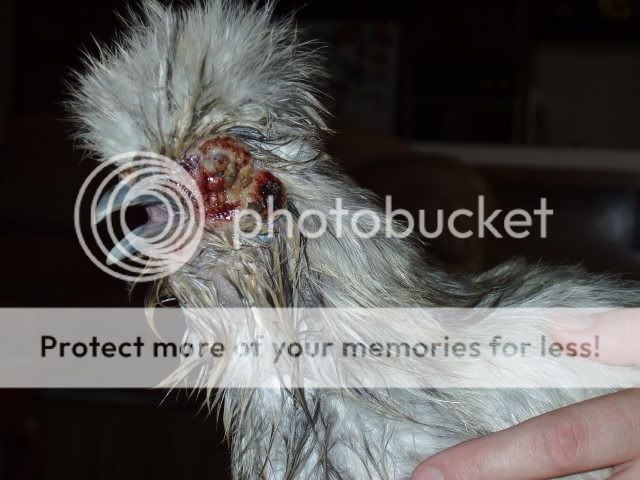That doesn't look like pox to me. Here is a picture of one of my hens, Daisy, with pox. They start out as "zit" looking things, then they pop and puss everywhere. I had to feed Daisy with a syringe because she couldn't see out of either eye and couldn't breathe out of her nose.
This picture was taken within days of me finding it on her. It's confirmed pox... I took her to the vet.

This picture was taken within days of me finding it on her. It's confirmed pox... I took her to the vet.




